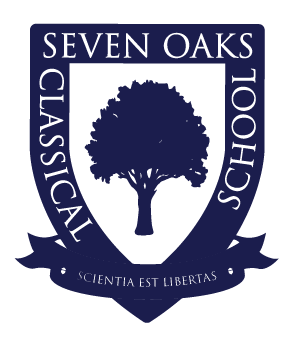
Foreign Languages
“Latin is the key to the vocabulary and structure of the Romance languages and to the structure of all the Teutonic languages, as well as to the technical vocabulary of all the sciences and to the literature of the entire Mediterranean civilization, together with all its historical documents.”
— Dorothy Sayers
Latin
The Latin language outlived the Roman Empire. It remained the common language of the educated class throughout the West until the 1700s. Those who master the Latin language will enjoy immediate access to two millennia of some of the greatest philosophical, theological, political, literary, scientific, mathematical, medical, artistic, musical, architectural, and educational works ever written. Translation of Latin literature also cultivates a keen sense of style, one that is characterized by precision, order, and beauty.
Even for those who do not achieve mastery, the benefits are significant. Study of the Latin language provides an excellent foundation for the study of English vocabulary and grammar. Roughly two-thirds of the English language derives from Latin.
Other benefits owe to the structure of the Latin language. Translating Latin demands careful and logical thought. The memory, discipline, and focus required by the study of Latin provide the sort of mental conditioning that makes students more capable in every other course of study they undertake. It is no accident that students who study Latin consistently score higher on the SAT and outperform their peers in other fields of study.
French
Seven Oaks has a vibrant French program. The French department is led by award-winning teacher, Diana Kinser. Seven Oaks French students have distinguished themselves at French competitions in the state of Indiana.
Linguistically and culturally, French bridges the gap between Latin and English. French was integral to the evolution of English out of the Anglo-Saxon language. Now, the relationship between Latin, French, and English still runs deep and provides immense insight into the meaning of our everyday vocabulary. Student connection with the language develops appreciation for French culture, art, and music. Additionally, learning French opens the door for greater understanding of pivotal moments in shared American and French history.
Greek
Ancient Greek introduces students to the Greek alphabet, verb conjugations and tenses, noun and adjective declensions, and the power of Greek participles and particles. Students draw upon their knowledge of Latin and apply it to the morphology, grammar, and syntax of ancient Greek. Students translate practice sentences modified passages of Herodotus and Plato.



